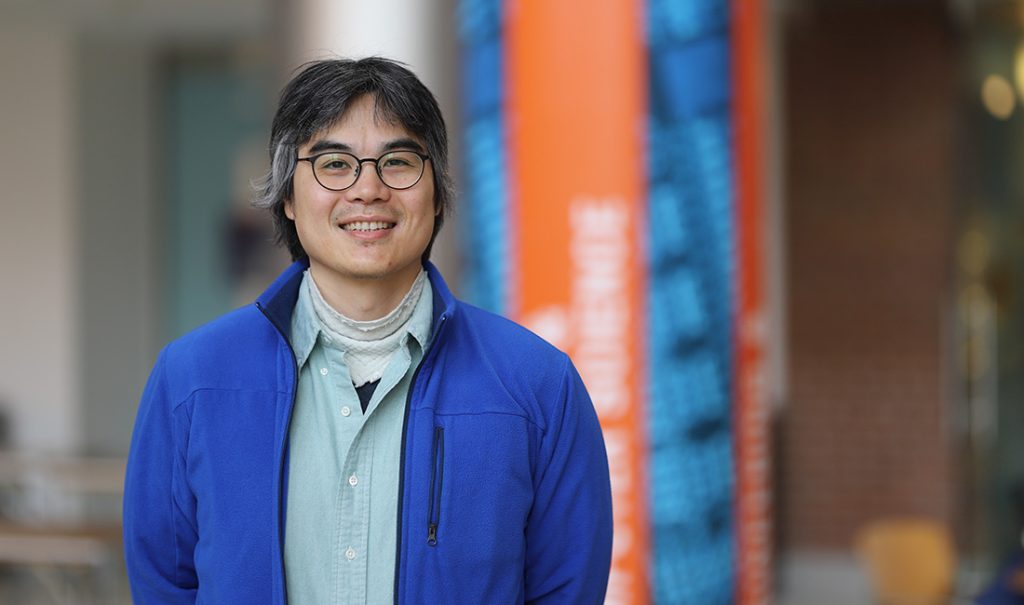
Bryan Kim, an assistant professor in electrical engineering and computer science (EECS), has received the National Science Foundation (NSF) CAREER Award, a highly prestigious award that supports early-career faculty in developing their career as outstanding researchers and educators. The award will build on his previous research on data storage systems and contribute to the field by exploring new ways to improve the memory and storage systems of computers.
Computer systems use memory to hold data temporarily and storage for long-term data. Both memory and storage have made significant improvements due to the increased demands from data analytics and machine learning applications. However, the performance of these memory and storage systems is limited by the flow of information between the software that uses data and the hardware that stores it. Kim’s research project aims to fill the gap in information by adding implicit hints between systems and devices.
The project is innovative for two main reasons: first, it will use the address of the data as an implicit agreement for the expected performance quality of accessing that data. Second, it will optimize the hardware and software systems based on this interface. The broader significance of the project is improving the sustainability and performance of computer systems and developing the educational pipeline for computer systems.
“My project aims to improve memory and storage systems that use narrow interfaces such as physical memory addresses and logical block addresses. The key insight is that there are translation layers above and below these interfaces, which enable systems and devices to pass hints while remaining compatible with older systems,” says Kim.
As part of the NSF grant, Kim plans to engage undergraduate students in research activities and develop workshops for K-12 students in collaboration with the Museum of Science and Technology in downtown Syracuse. He also plans to create and enhance tools for the undergraduate courses he teaches, which will help demonstrate how computer systems function.
“Visualization tools make it easy for undergraduate students to understand how data moves in a complex computer system,” says Kim. “This project will allow me to develop an education pipeline so we can get more students involved in research.”
Kim’s research will be integral to the field of computer storage systems and will improve the performance of these systems without needing to change how the applications work.
“Bryan’s research on collaborative operation of the memory and storage system is critical for managing the massive amount of data movement in next-generation artificial intelligence, bioinformatics, and scientific computing among many other application areas,” says Alex K. Jones, the Klaus Schroder Endowed Professor for Engineering and Department Chair of EECS. “His recognition from the NSF during this time is a testament to his great research and the important research happening broadly in EECS at Syracuse University.”
“Dr. Kim has been an incredibly valuable resource to EECS and our college due to his knowledge of new and emerging memory systems. He is a thoughtful instructor who has emerged as an especially creative scholar in this critical field. With the arrival of semiconductor manufacturing in Syracuse, we are incredibly grateful to have a thought leader of his caliber in our college,” says Dean J. Cole Smith.
“That’s one of the things about research, we’re able to look far because we’re standing on the shoulders of giants,” Kim says. “We’re building on top of other people’s work. I feel fortunate and grateful to be receiving this reward.”
